Interpretive, Interpersonal, and Presentational Modes of Communication
Exploring Culture
While taking Spanish 102, we did exploración activites in Lingro Learning. These Lingro learning assignments taught me a lot about different speaking countries. We would watch videos of people from the Spanish speaking countries explaining their country.
I was better able to understand the differences between what they did in their Spanish-Speaking countries and what we did in America by participating in activities that forced me to investigate and learn about the various cultures.One assignment taught us about which Spanish speaking countries accepted same sex marriages and relationships. I learned that Argentina, Chile, Columbia and Ecuador are countries that allow same sex marriages.In Panama it’s not legal.I thought all Spanish speaking countries accepted same sex which this activity taught me I was wrong .Learning this gave me a better understanding of what are the differences in our country.
Contraseña : 6 exploración cultural
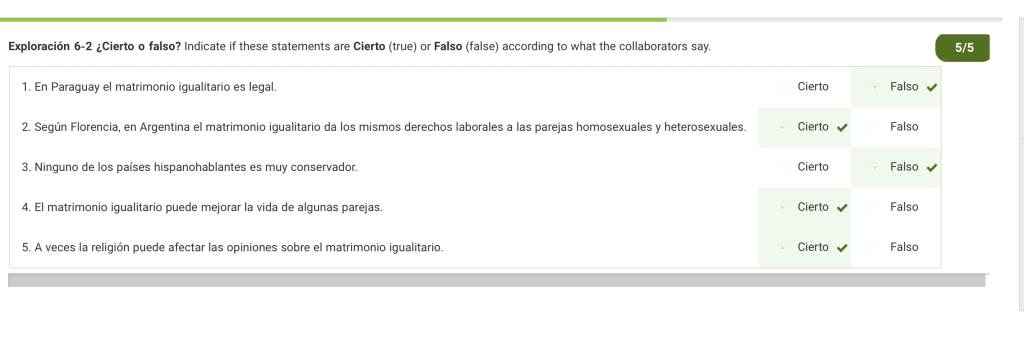
Engaging in Communities
Participating in your local community helps you build a support system, a sense of community, and stronger social ties.Community is a good thing, when I think of community I think of my family or being around them.
Talkabroad helped me engage in my native speaker community.It took me a while to come up with the questions to ask my person. Once I had my questions together talking to her was easy.Asking her questions, helped me learn things about her community I would’ve never known.My native speaker talked about the food she liked from her culture and other cultures.My native speaker gave me a couple of foods to try from her country, this helped me feel apart of her community.
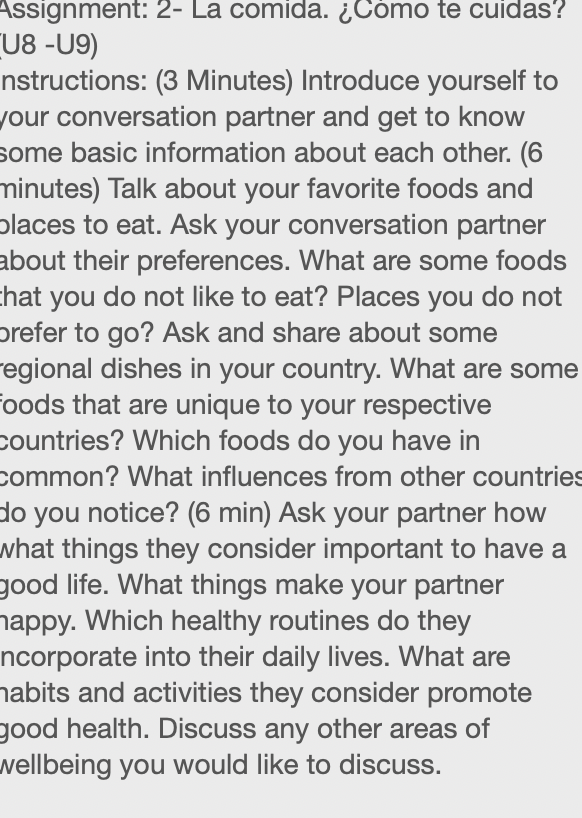
Talkabroad rubric
Interpersonal Communication
Throughout this semester we had 2 TalkAbroad assignments. With TalkAbroad, students can engage in direct communication with native speakers of the language they are studying through an telecollaboration platform. This service makes talking to individuals around the world much easier.
The telecollaborative conversations were easier than I expected because we got to prepare our questions before we got onto the call.Having our questions already prepared made it much easier and it helped me not be as nervous.Coming up with the questions for the conversation was also easy because we had plenty of time to prepare.Sometimes my native speaker would say words I didn’t understand but once you get off the call you can review the audio.Once getting off the call I would review the audio of the conversation of me and my native speaker and research those new words.
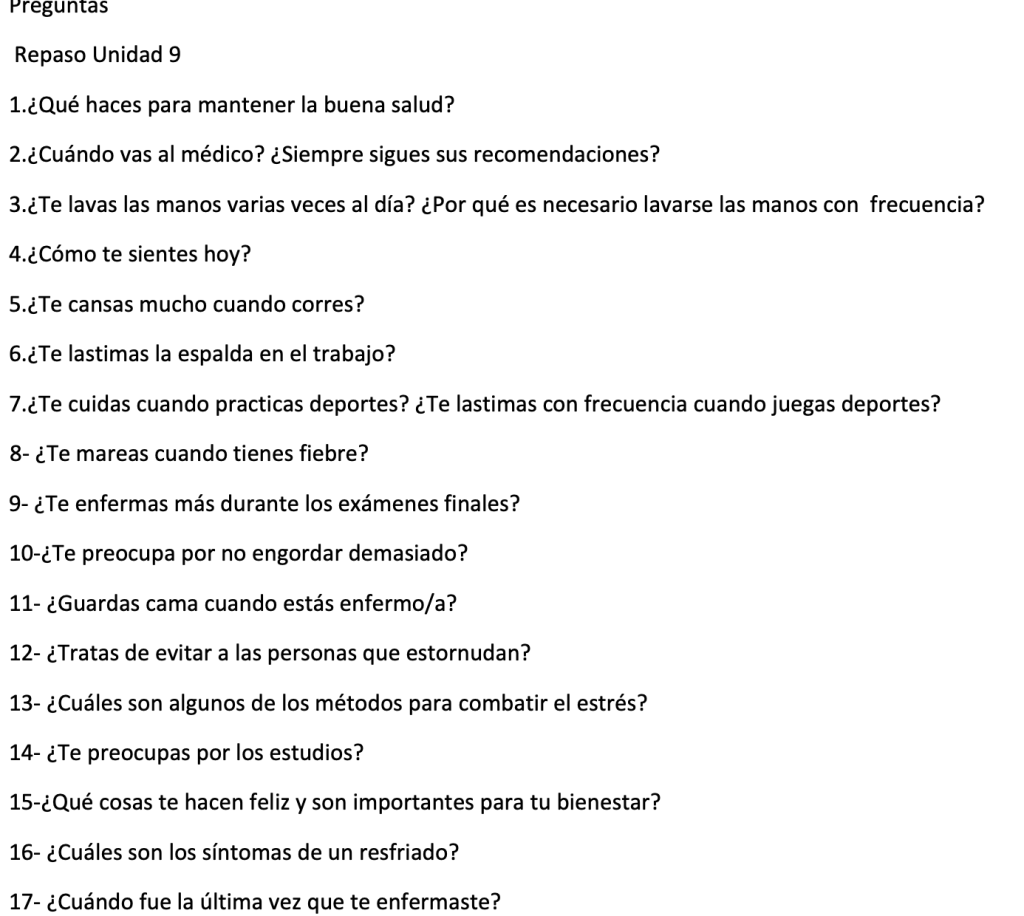
Presentational Speaking
During this semester we worked on a project where we had to record a video of us holding up a picture of our family and explaining their appearance and personality traits.We also had another project where we had to give a tour of campus and explain the activities we do in those places.
During the first project I struggled because, I didn’t know how to explain a lot of my families appearance without looking at the vocabulary so I had to study the vocabulary more before recording the video.It took me 10 tries filming this video to get it how I wanted it.This project was one of my favorites because it was personal to me and my family.


Presentational Writing
During this semester we had to complete a project, where we had to create a ad or article for a club that had to do with sports.We had to put 10 activities onto the calendar of what we do during the week.
This assignment helped me learn how to write about the activities I do with basketball in Spanish. This project was also challenging because we had to learn new vocabulary to complete this project. I had to keep reviewing the vocabulary and grammar rules to complete this project. The easiest part about this project was being able to come up with your own activity and explaining how you want to.I learned new vocabulary and new pronunciation with this project.
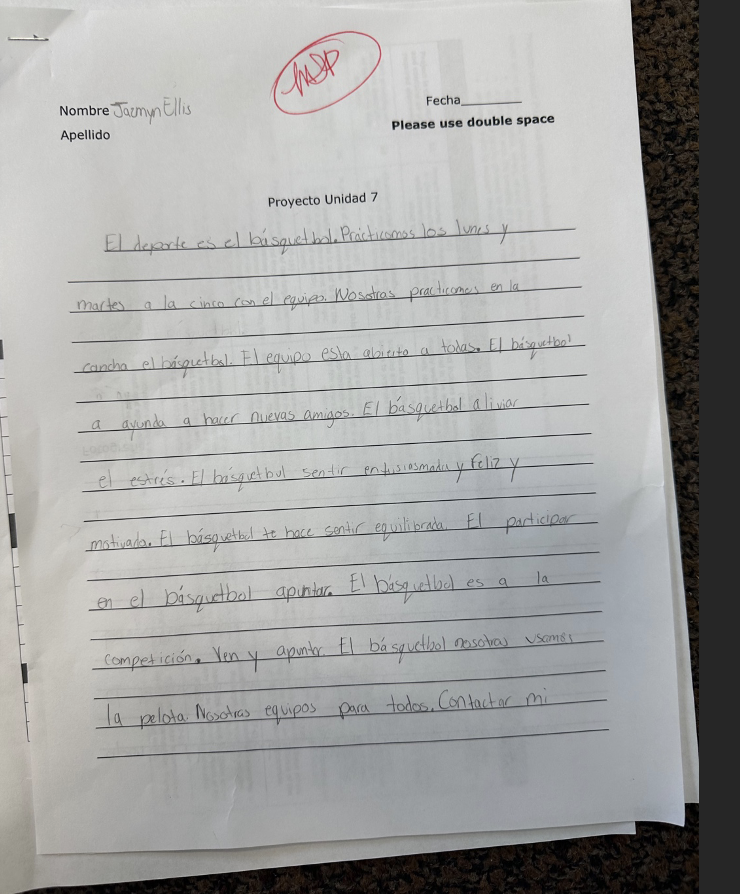
Interpretive Listening
There were many listening exercises available on Lingro Learning to assist with both word pronunciation and identifying the form of a statement.The listening exercises improved my ability to understand what people are saying to me as well as my ability to pronounce words and letters. In Spanish, words can have entirely different meanings depending on how multiple letters are spoken. I was able to identify the speaker of a Spanish statement by listening to it and using our Lingro learning assignments to determine which subject pronoun was being used, this process helped me complete assignments.
The listening exercises improved my ability to process what people are saying to me as well as my ability to pronounce words and letters with accent marks. In Spanish, words can have completely different meanings depending on how letters are spoken or written.Sometimes the speakers spoke faster than what I could understand so I would have to listen to the videos multiple times, but it helped me learn new words.
Contrasena:Vocabulario I
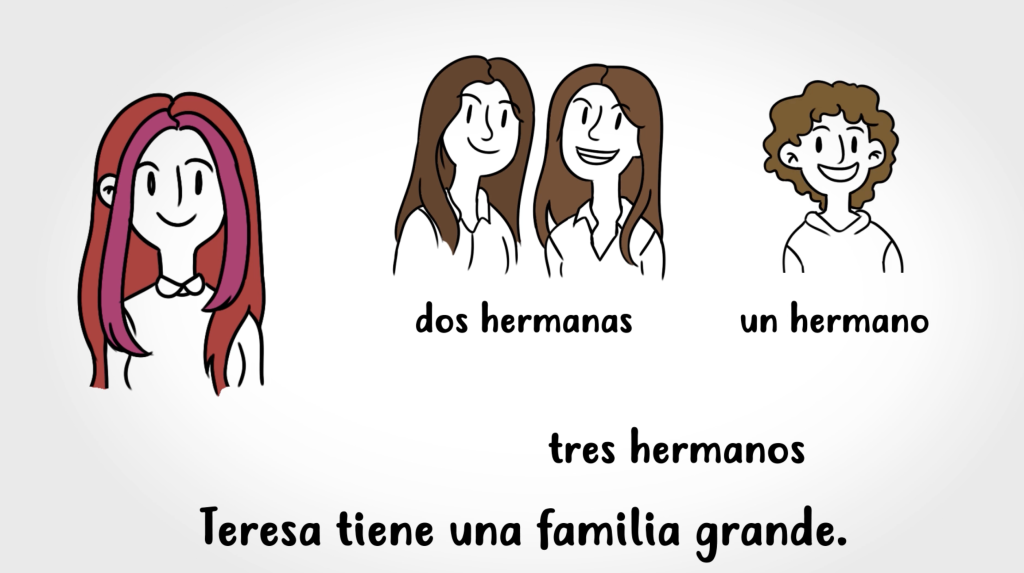
Interpretive Reading
As part of our Lingro Learning assignments, we were required to read various Spanish-language summaries of people’s hobbies and lives. In a lot of our projects, we also had to choose the correct word based on the surrounding text.
In the beginning, I found it challenging to read and learn about people’s lives in the Lingro learning assignments since I didn’t know many of the words. However, I was able to identify the ones I did know and piece the rest of the text together. I also had a great time learning about the lives of individuals in many nations. I found it quite easy to fill in the spaces based on the surrounding text.Each assignment I grew because we would do the Lingro Learning before coming to class and if I I didn’t understand something I talked to the professor.This helped me be successful on most assignments.
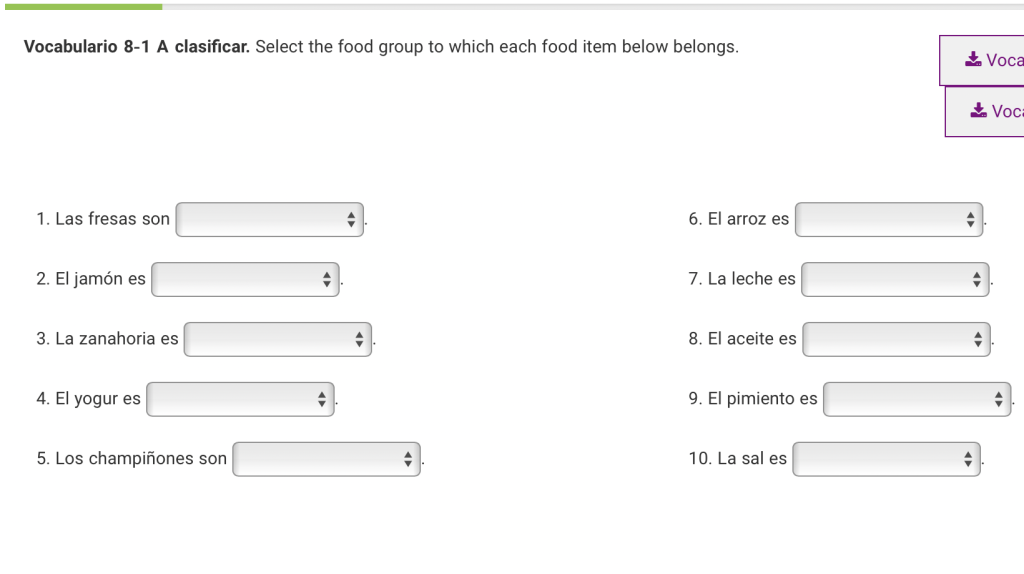
Contrasena Vocabulario: 8-1